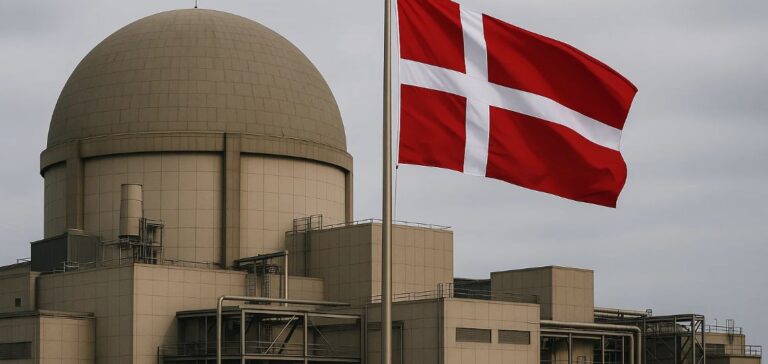Denmark may lift the nuclear energy ban introduced in 1985, Minister for Climate, Energy and Utilities Lars Aagaard said in an interview published by the daily Politiken. The country plans to assess the potential benefits of new nuclear technologies as part of a government report expected in 2026.
Towards a targeted regulatory review
According to Lars Aagaard, the government aims to evaluate the relevance of a regulatory framework that would allow the emergence of small-scale nuclear reactors, known as Small Modular Reactors (SMR). These systems are described as more compact and potentially safer than conventional nuclear infrastructure.
“We are seeing developments around these new technologies. But it is not enough for them to have potential—we also need to understand what this means for Danish society,” said Aagaard, whose remarks were confirmed on Wednesday by his ministry.
Exclusion of traditional nuclear technologies
The minister clarified that any regulatory review would not concern conventional nuclear technologies. The government’s energy strategy remains focused on expanding wind and solar power, seen as the fastest and most cost-effective means of achieving the energy transition.
The nuclear ban was implemented in Denmark in 1985. In 2005, the closure of Sweden’s Barsebäck 2 reactor, located near Copenhagen, was welcomed by much of the Danish population.
Parliamentary pressure and political timeline
The announcement comes amid increasing debate within the Danish Parliament, where several opposition parties support the reintroduction of nuclear power into the national energy mix. Lars Aagaard is scheduled to respond to their questions during a public hearing held this Wednesday.
Denmark’s stance contrasts with that of Sweden, where the current government is actively pursuing a pro-nuclear agenda, with new facility projects in the pipeline. The upcoming report is expected to clarify Denmark’s regulatory position ahead of international climate deadlines such as COP29.






















